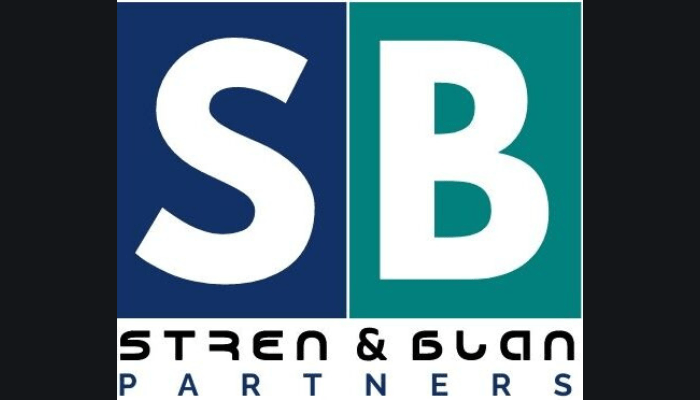Consumer Protection and Fair Competition: Compliance measures for companies in Nigeria’s FMCG sector

Introduction
The Federal Competition and Consumer Protection Commission (FCCPC) recently published data, which revealed that the Fast-Moving Consumer Goods (FMCG) sector recorded 1,543 consumer complaints between March and August 2025. The second-highest recorded within the period. The cardinal issues raised in those complaints range from deceptive marketing practices, product defects, poor disclosure of contractual terms, and failure to resolve complaints within acceptable timelines.
Ensuring fair competition and consumer protection in Nigeria’s FMCG sector is no simple task due to the high turnover rate, availability of substitutes, and price sensitivity for which the sector is known. Recent investigations by the FCCPC have revealed that some associations not only agree on uniform pricing but also impose restrictive membership fees and control who may participate in the market, thereby creating barriers to entry and increasing consumer costs. Similarly, in February 2024, the FCCPC sealed a supermarket in Abuja after it discovered that the store consistently displayed lower shelf prices while charging higher amounts at the checkout.
The relevant laws in Nigeria, including the Federal Competition and Consumer Protection Act (FCCPA) and the Lagos State Consumer Protection Agency (LASCOPA) Law, require strict compliance with consumer protection policies and provide even stricter penalties for anti-competitive practices. To ensure an equilibrium between fair competition and compliance, companies in the FMCG Sector are advised to adopt transparent pricing systems, establish effective consumer redress mechanisms, proactively engage with regulators, and deploy technology-driven solutions.
Understanding Consumer Protection, Fair Competition and Compliance Measures in Nigeria
Consumer protection revolves around laws, policies, and regulatory frameworks designed to safeguard consumers of goods and services against exploitation, unfair practices, and substandard products. In Nigeria, the FCCPA represents a crucial piece of legislation passed to protect consumers and prevent unfair competition. The FCCPA provides several rights for consumers, including the right to safety. Section 120 of the FCCPA 2018 places a duty on producers, distributors, and suppliers to ensure that goods and services made available to the public are safe for ordinary use. The sale or distribution of unsafe products is prohibited, and suppliers are under an obligation to withdraw dangerous items from circulation once discovered.
Furthermore, this right is complemented by the right to information. Sections 115 to 117 of the FCCPA 2018 lend credence that consumers must be given adequate, accurate, and clear information about goods and services before making a purchase. This extends to price, quality, composition, risks, and conditions of use. In addition, Sections 129 to 132 guarantee the right to fair value, quality, and safety of products and services. Instructively, goods sold in Nigeria must be of merchantable quality and fit for the purpose for which they are supplied. Where goods turn out to be defective, the consumer is entitled to a repair, replacement, or refund.
The FCCPA 2018 guarantees consumers fair and honest dealings under Section 125, which prohibits false representations, bait advertising, and exaggerated claims. Strict punishments apply: Section 155 of the FCCPA 2018 provides fines or imprisonment, with companies liable up to 10% of turnover. Supplying unsafe goods under Section 120 of the FCCPA 2018 equally attracts fines, liability, and up to five years’ imprisonment, while false claims under Section 125 carry two years’ jail or ₦10 million fines.
In relation to unfair competition, the FCCPA 2018 comprehensively addresses anti-competitive practices. For instance, Sections 59 to 69 of the FCCPA 2018 prohibit restrictive trade practices such as price-fixing and market allocation, while Sections 70 and 72 of the FCCPA 2018 prohibit abuse of dominance, including charging excessive prices.
At State level, the FCCPA 2018 is complemented by LASCOPA, which aligns with its objectives under Section 4. The Law grants consumers the right to protection against hazardous goods and services, the right to be informed about quality, quantity, standard, and price, and protection against unfair trade practices. Consumers also have the right to seek redress for exploitation, to be heard in appropriate fora, and to access education and awareness programs to safeguard their interests.
FMCG companies in Nigeria must also ensure accurate labelling and handling complaints. Some products require compliance with regulations enforced by the National Agency for Food and Drug Administration and Control (NAFDAC) and the Standards Organisation of Nigeria (SON), while advertising must comply with the Nigerian Code of Advertising and avoid misleading claims. FMCG companies must also follow environmental standards and labour laws.
Challenges of Compliance in Nigeria’s FMCG Sector
While the regulations are designed to safeguard consumer interests and ensure fair competition, FMCG companies often struggle to keep pace with the costs and complexities of compliance. The rising inflation and foreign exchange shortages frequently push production costs well beyond these thresholds. This leaves companies caught between strict legal requirements and harsh market realities. A handful of companies have wound down their operations in Nigeria due to the “unsustainable business environment”. Likewise, a major beer and alcoholic drinks company divested its controlling stake in its Nigerian subsidiary. In a nutshell, the complexity of the Nigerian market, forex restrictions, economic volatility, and strict product registration undermine competitiveness, highlighting the need for reforms to create a more enabling environment for businesses.
Striking the Balance: Policy and Business Strategies
Sustaining growth is vital for the survival of FMCG companies; at the same time, regulatory compliance remains non-negotiable. Failure to comply with regulations usually results in swift, far-reaching, and damaging consequences to both reputation and profitability.
The FCCPC has imposed heavy penalties on companies for anti-competitive practices and price inflation. In 2023, a multinational FMCG company was fined $110 million for abusing market dominance and stifling rivals.
Regardless, striking a balance between regulatory compliance and business sustainability poses a serious challenge for Nigeria’s FMCG sector. However, recent experiences have shown that with the right strategies, these challenges are surmountable. Key approaches include:
a. Third Party and Distributor Compliance Monitoring
In Nigeria’s FMCG sector, noncompliance by distributors and third parties often exposes companies to liability under the FCCPA 2018. Corporations must conduct due diligence before onboarding distributors, reviewing their compliance history with FCCPC, NAFDAC and SON. Contracts should include compliance clauses, audit rights and penalties for unethical conduct such as price gouging or counterfeit distribution. Continuous monitoring through periodic audits, surprise checks and market surveys ensures distributors uphold consumer protection and fair competition principles, thereby safeguarding the company’s reputation.
b. Strong Financial and Pricing Controls
Without a doubt, pricing practices are central to fair competition. Companies must avoid predatory pricing, collusion and discriminatory pricing that could trigger FCCPC scrutiny. A robust internal pricing policy should mandate documented justifications for price adjustments, with multilevel approvals before implementation. Promotions and discounts must be transparent, with terms clearly disclosed to consumers. Conclusively, embedding compliance checks into financial controls not only prevents unfair competition but also builds consumer trust and shields the business from regulatory penalties.
c. Proactive Engagement with Regulators and Legal Experts
Effective consumer redress mechanisms and proactive engagement with regulators are vital for sustaining trust in Nigeria’s FMCG sector. This will foster clarity and reduce risks. Legal professionals, on the other hand, can complement this role by monitoring recent policies released by the regulators, staff training, real-time guidance on consumer protection, reviewing existing company practices and policies on advertising and labelling, consumer complaints handling, risk management and KYCs.
d. Enhancing Compliance through Innovative Tools
Enhancing compliance in Nigeria’s FMCG sector requires innovative tools that ensure transparency and build trust. For instance, Sproxil’s Informer traceability system enables real-time product verification, while Chekkit’s blockchain-powered authentication platform protects consumers from counterfeits and unfair practices. Combined with Power BI compliance dashboards, these solutions can help FMCG companies strengthen alignment with consumer protection laws, uphold fair competition, and reinforce long-term credibility with regulators and consumers alike.
Conclusion
In conclusion, achieving resilience in Nigeria’s FMCG sector depends on striking a careful balance between regulatory compliance and sustainable business practices. By working closely with regulators, transparent pricing, and consumer protection at the heart of operations, companies can foster trust, attract investment, and secure long-term competitiveness in a challenging and dynamic environment.
Marvis Oduogu is a Team Lead in Stren & Blan Partners’ Fast-Moving Consumer Goods (FMCG) Sector. Chibudike Anene is a Senior Associate, while Chinenye Martins and Ifechukwu Ewulum are Associates in the Firm’s FMCG Sector.
Stren & Blan Partners is a full-service commercial Law Firm that provides legal services to diverse local and international Clientele. The Business Counsel is a weekly column by Stren & Blan Partners that provides thought leadership insight on business and legal matters.
Connect with Stren & Blan Partners:
Website: www.strenandblan.com
LinkedIn: linkedin.com/company/strenandblan
Twitter: twitter.com/Strenandblan
Instagram: instagram.com/strenandblan









Leave a Reply